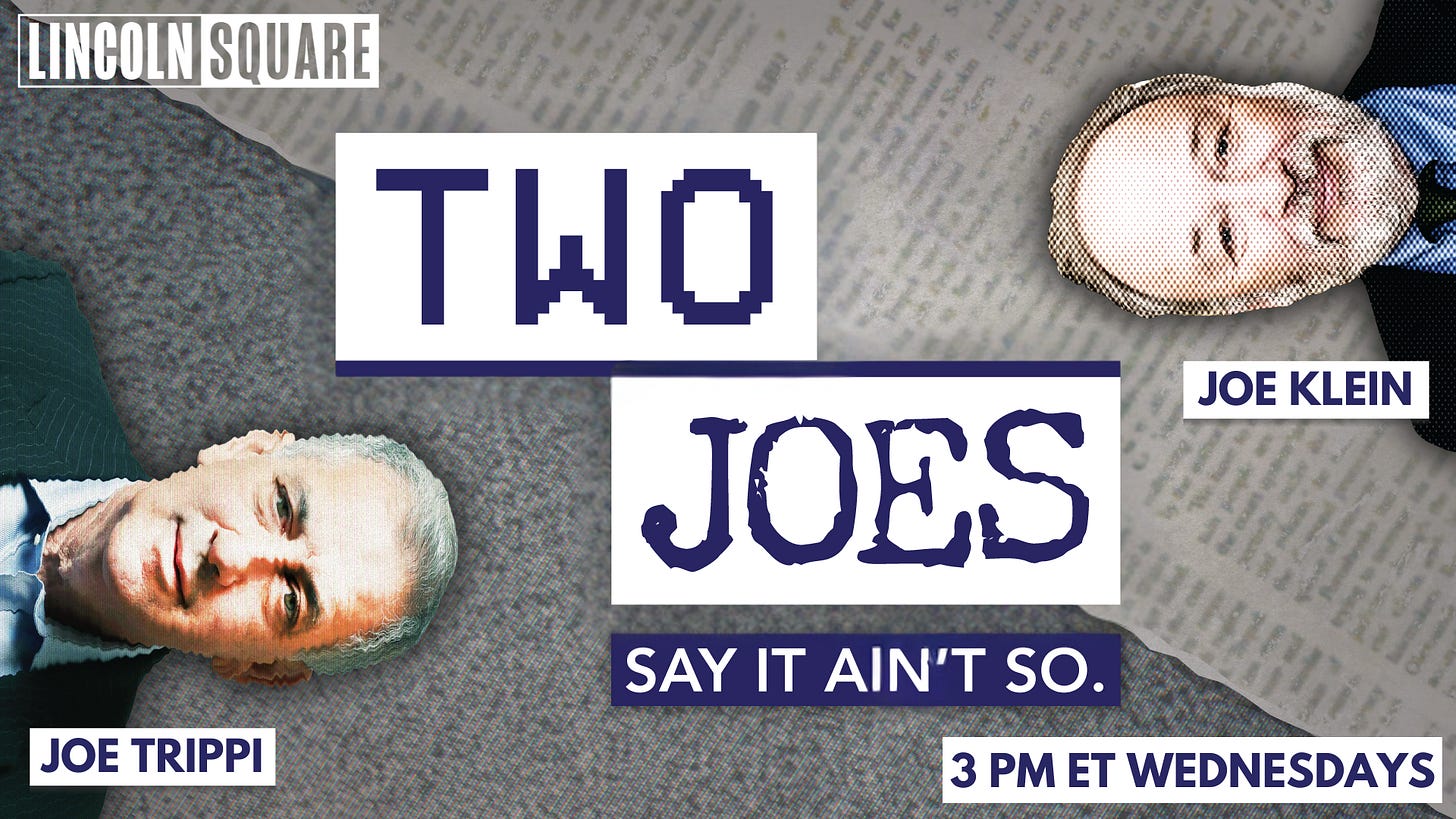Disaster relief is being used as a political reward rather than a public responsibility.
Loyalty is being shaped through direct communication channels instead of policy outcomes.
Building real political power requires creating spaces where people feel seen and spoken to directly.
The Lincoln Project’s Joe Trippi and veteran political columnist Joe Klein bring two different, but deeply complementary instincts to the table on their new podcast, Two Joes. Trippi thinks in terms of real political power — how you build a base, how you talk to people directly, how you create a relationship instead of a performance. Klein listens for meaning in the language we use, especially the way Democrats talk around discomfort rather than through it. Together, they’re making the point that the Democratic Party can’t just message better — it needs to rebuild its connection to people who feel abandoned or unseen.
Their presence on Lincoln Square signals something important: we’re not just observing the moment we’re living in, we’re trying to shape it. The Two Joes model disagreement that isn’t performance art — disagreement that leads somewhere. And in a time when disaster relief is being allocated based on whether a governor flatters the president, and when entire communities are being sorted into “deserving” and “undeserving,” that model matters. It reminds us that persuasion still exists, solidarity still matters, and politics is not supposed to be a loyalty oath — it’s supposed to be how we take care of each other.


















